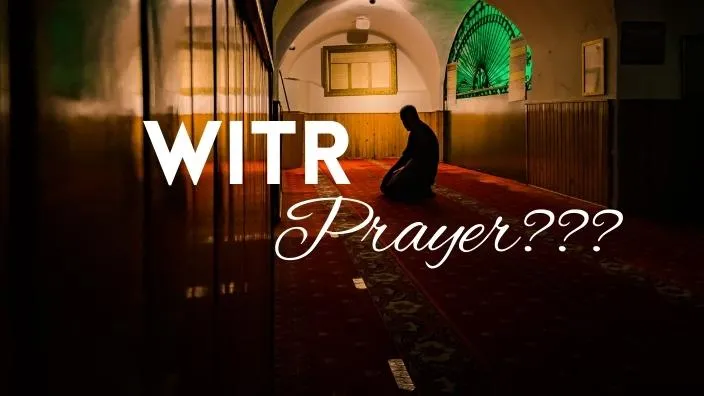Offering prayer (Namaz) is the first and foremost duty of Muslims, without which one cannot be considered a perfect Muslim. Muslims offer prayer five times a day, one can offer neither a prayer at the time of another prayer nor all the prayers at one time.
The last prayer is called Isha and witr is the last part of this prayer. There is a debate on this prayer timing, number of rakat and way of praying witr. On account of this people often have confusion of not only Witr timing but also how to pray witr. However, every prayer has its own specific time and missing prayer in that time can be offered later.
This article discusses all the issues regarding witr timings, way of praying witr, the thoughts of premier schools of thoughts and other incidental matters.
Table of Contents
- Meaning of “Witr”
- History of Witr Prayer
- The Significance of Praying Witr
- Witr Prayer: Wajib or Sunnah?
- Offering Time of Witr Prayer
- Differences between Witr and Other Prayers
- Number of Rakats in Witr Prayer
- How to Pray Witr Isha?
- How to Offer Witr: Steps
- The Dua Qunoot in Witr Prayer
- Dua for Witr Prayer, Which one to be Recited?
- Praying Witr & Islamic Schools of Thoughts
- Witr can be prayed collectively or individually?
- Conclusion
- Frequently Asked Questions
Meaning of “Witr”
The term ‘Witr’ is an Arabic word which bears the meaning of ‘odd number’, this part of prayer is named after the fact that its rakat or units should be odd in number, so people offer one, three, five or seven rakat. It is the only prayer having a lengthy offering time, it is preferred to offer it after the Tahajjud prayer.
If one daily offers Tahajjud then offering Witr after that is better. If one cannot wake at night, it should be prayed just after Isha. The traditions (ahadith) about Witr are:
The prophet Muhammad PBUH said, “Whoever neglects Witr is a bad man whose testimony should not be accepted.” (Tirmidhi)
"The witr prayer is offered in units of two Rakat. If you fear that dawn is near, conclude with a single rakat so the night prayer will be of an odd number." (Bukhari).
Related Article: How to Pray Maghrib
History of Witr Prayer
The Witr was the extra prayer prayed by Prophet Muhammad PBUH at a late time during the night. It was a prayer which our Prophet never missed so His companions, who were unable to offer Tahajjud, came and asked the Prophet PBUH that they wished but could not wake up from sleep during the night out of tiredness.
The Prophet PBUH said that it would be better for you people to offer Witr just after the Isha prayer. Practicing it as a Sunnah, people who cannot pray Tahajjud opt to pray Witr just after the Isha prayer. In a sahih hadith, the prophet (PBUH) said: The witr is a duty for every Muslim.
The Messenger of ALLAH (PBUH) said: “Whoever fears that he will not get up at the end of the night, let him pray witr at the beginning of the night, but whoever thinks that he will be able to get up at the end of the night, let him pray witr at the end of the night, for prayer at the end of the night is witnessed (by the angels) and that is better.” (narrated by Muslim, 755).
It is the last and final prayer of the night having the most lengthy offering time interval between Isha and Fajr. The most important significance of the Witr prayer is that it was regularly prayed by our Prophet Muhammad PBUH and He PBUH never missed this prayer at any cost.
For Witr Prophet PBUH used to wake up from sleep and offer this after Tahajjud. For this prayer, we are given the option of rakat, time and reciting duaas. In this prayer, during night Muslims can make wishes of forgiveness and paradise by reciting Dua Qunoot. This prayer is the source of ALLAH’s happiness and reward. Hadiths about the significance of the Witr:
One hadith says, “ALLAH has prescribed for you a prayer by which he may increase your reward, which is a Witr prayer.”
It was narrated that Ubayy bin ka’b said: “The Messenger (PBUH) of ALLAH (SWT) used to perform Witr and recite: ‘Glorify the name of your Lord the most high.’, [al-a’la (87)] ‘say: O you disbelievers!” [al-kafirun (109)] and ‘say: ALLAH is one.”. [al-ikhlas (112)] grade: Sahih (darussalam) Sunan ibn Majah
Witr Prayer: Wajib or Sunnah?

It is a widely discussed topic whether Witr prayer is wajid or sunnah. Before discussing this debate it would be better to know what are wajib and sunnah. Wajib means the mandatory prayer, praying wajib prayer is good and he who misses it is blameworthy. On the other hand, Sunnah means the practice of our holy Prophet PBUH. Following Sunnah is also mandatory for every Muslim. There are two types of Sunnah prayer, the one prayed by Prophet PBUH regularly is Muakkadah and the one prayed occasionally is ghair Muakkadah.
There are four imams; Abu Hanifah, Ahmad, Shafi and Malik and everyone has their own school of thought.
The first one, Imam abu Hanifah, considered witr as wajib while the remaining three imams based on the hadith that this prayer is not mandatory thought that witr is sunna e muakaddah. The Hadith about whether Witr prayer is wajid or sunnah:
It was narrated that Ali, may ALLAH (SWT) be pleased with him, said: “Witr is not essential like the obligatory prayers, but it is the sunnah of the Messenger of ALLAH (SWT): Sahih (Darussalam) Reference: Sunan an-Nasa’i.
Offering Time of Witr Prayer
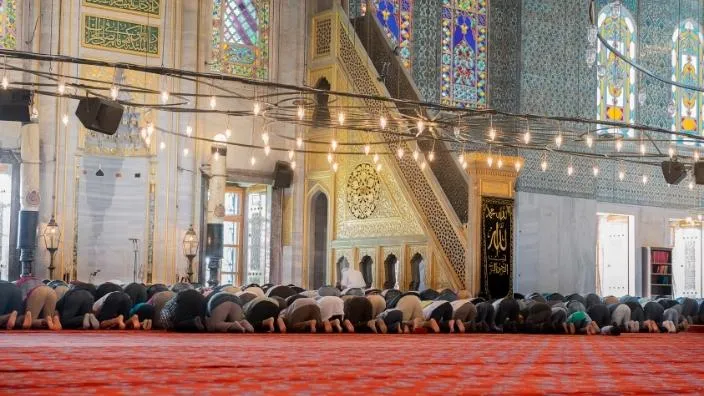
The offering time for Witr is the longest interval of all, it is in between after Isha and before Fajr. It is a prayer which our Prophet never missed, His companions, who were unable to offer Tahajjud, came and asked the Prophet PBUH that they wished but could not wake up from sleep during the night out of tiredness.
The Prophet PBUH said that it would be better for you people to offer Witr just after the Isha prayer. It is preferred to offer it after the Tahajjud prayer. If one daily offers Tahajjud then offering Witr after that is better. If one cannot wake at night, it should be prayed just after Isha.
The Hadiths about the timing of Witr are:
Aisha narrated that ALLAH’s apostle offered Witr prayer on different nights at various hours extending (from the ‘isha’ prayer) up to the last hour of the night.
‘A bin ‘Umar narrated that the Prophet PBUH said: “makes your last prayer at night.”
Aisha narrated that “the Prophet PBUH used to offer his night prayer while I was sleeping across in his bed. Whenever He PBUH intended to offer the Witr prayer, He PBUH used to wake me up and I would offer the Witr prayer too”.
Differences between Witr and Other Prayers
There are many differences between Witr and other prayers. All other prayers including Juma Prayer have the same methods of praying. For all of them, the time and limit are specific, one can offer neither a prayer in the time of another prayer nor all the prayers at one time.
Every prayer has very limited and short intervals of offering time. All of them have mostly even number of rakat except Maghrib. Moreover, all of the prayers have a particular and limited number of rakat.
The scenario is different for Witr, which has the longest offering time for all. The numbers of rakat also vary, depending on the performers and their capacity. But the number must strictly be odd, 1,3,5,7,9,11… This prayer consists of a section called dua, in which the performers can recite either dua e qunoot or any other dua they wish. The last one Takbeer, touching the ears during the last Rakat after reciting the surah and before performing ruku, no prayer of the day out of 5 has this.
Number of Rakats in Witr Prayer
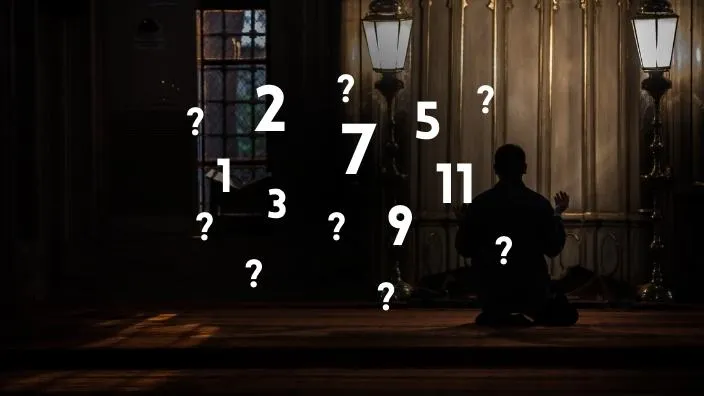
Its name indicates odd number, is it named after the fact that its rakat or units should be odd in number, so people offer one, three, five or seven rakat or more but must be odd. If one is in haste and cannot perform much rakat he/she can offer only 1. If one has the capacity and wishes to do more he/she can go for 3,5,7 or 11 or more but remember the number must be odd.
According to the hadith, "The witr prayer is offered in units of two raka'at. If you fear that dawn is near, conclude with a single rak'ah so the night prayer will be of an odd number." (bukhari).
The Prophet (peace and blessings of ALLAH be upon him) said: “Witr is one rak'ah at the end of the night.” (Narrated by Muslim, 752).
How to Pray Witr Isha?
All other mandatory prayers and Sunnah prayers have the same method of performance but there is a slight difference for this night's last prayer. There is a debate on this prayer timing, number of rakat and way of praying witr. On account of this people often have the confusion of not only Witr timing but also how to pray witr.
Some schools of thought argue about the number of Rakat while others discuss the way of offering. However, there are hadiths about the way of offering and under the light of those teachings of our Prophet Muhammad (PBUH) Witr should be prayed.
How to Offer Witr: Steps
The differences we are talking about in the previous section are only in the last rakat, the rest of the rakats are prayed just like the other prayer. It would be better to begin with the very first rakat of Witr to understand the whole prayer.
First Rakat of Witr
The first rakat always begins with niyyah or intention of the namaz, it either is expressed in the mind or uttered silently. The words may vary from person to person but are often recited, to begin with the name of ALLAH I am offering this prayer on this time facing my head towards the qibla. If you are offering after imam then no need for niyyah.
The next is Takbeer, touching earlobes or just raising hands while saying ALLAH O AKBAR, then begin with Subhana….. then Sura e Fatiha and then another surat which one do you want to recite? Then perform Rukuh and the sujood. For the complete details visit our other article on how to pray Asar.
If you are praying just one rakat Witr, the method is the same as other prayers, the only difference would be after reciting any sura touch your hand and say ALLAH O AKBAR and then start reciting Dua Qunoot or any other dua. Then follow the same methods for rukuh, sajood, and qaida and finally conclude the prayer with Tasleem.
The hadiths about one rakat is:
Narrated Abu Ayyub al-Ansari: the Prophet (PBUH) said: the Witr is a duty for every Muslim so if anyone wishes to observe it with five rak’ahs, he may do so; if anyone wishes to observe it with three, he may do so, and if anyone wishes to observe it with one, he may do so. Grade: Sahih (Al-Albani) Reference: Sunan Abi Dawud.
It was narrated that ibn Umar said: “The Messenger of ALLAH (SA) said: ‘Prayer at night is two by two, and witr is one rak’ah.'” grade: Sahih (Darussalam) Reference: Sunan An-Nasa’i.
Ibn Umar narrated that ALLAH’S apostle replied, “The night prayer is recited as two rakat followed by two rakat and so on. If a Muslim is afraid of approaching dawn, then he should pray one Raka and this will be a witr for all rakat which he has prayed before.”
Second Rakat of Witr
If you wish to perform three rakats the second rakat is prayed with the above-mentioned method but here is another debate of Tashahud or Qaida in the second rakat. Some schools of thought perform Tashahud in the second rakat while others do not. Always remember that the rakats of witr prayer cannot be even in number, rather should always be odd.
Third Rakat of Witr
If you extend your Witr to the third rakat which would be better, then here is major thing to notice. Pray the first three or four essentials which are Takbeer, reciting Sura e Fatiha and the final Sura. The major essential of Witr is another Takbeer followed by reciting Dua Qunoot or any other dua. The next essential are Rukuh, Sajood, Qaida or Tashahud and the final concluding essential is Tasleem.
The different essentials which are not part of other prayers are raising the hands for Takbir before the Dua e Qunut and the Dua e Qunut in Witr before the Ruku’ of the third Rakat. Without these two essentials witr is just like other prayers so these essentials are the distinctive features of witr. People mostly prefer to offer three rakats. The Hadith about three rakats is:
Narrated Abu Ayyub Al-Ansari: The Prophet (PBUH) said: The Witr is a duty for every Muslim so if anyone wishes to observe it with five rak’ahs, he may do so; if anyone wishes to observe it with three, he may do so, and if anyone wishes to observe it with one, he may do so. Grade: Sahih (Al-Albani) Reference: Sunan Abi Dawud.
The Dua Qunoot in Witr Prayer
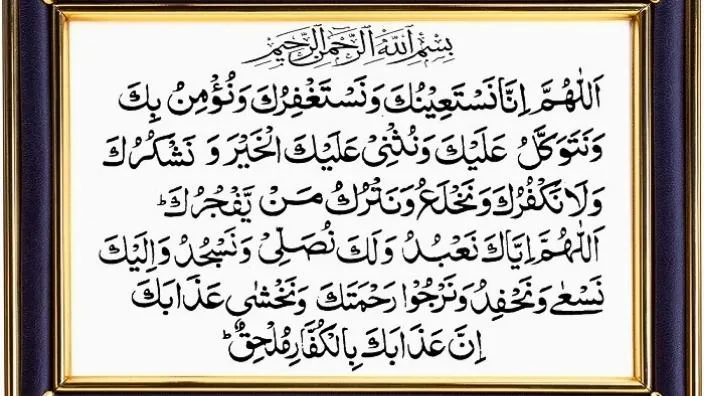
The Dua Qunoot can only be recited in Witr prayer while standing, before Ruku and differs the Witr prayer from another prayer. The questions that get birth here are, what is Dua Qunoot? What are the words? What is the meaning of this Dua Qunoot? So the transliterated words and meaning of Dua Qunoot are:
Transliterated words of Dua Qunoot
ALLAH humma inna nasta-eenoka wa nastaghfiruka wa nu’minu bika wa natawakkalu alaika wa nusni alaikal khair, wa nashkuruka wala nakfuruka wa nakhla-oo wa natruku mai yafjuruka, allah humma iyyaka na’budu wa laka nusalli wa nasjud; wa ilaika nas aaa wa nahfidu wa narju rahma taka wa nakhshaa azaabaka; inna azaabaka bil kuffari mulhik.
Meaning of Dua Qunoot
O, ALLAH! We implore you for help and beg forgiveness of you and believe in you and rely on you and extol you and we are thankful to you and are not ungrateful to you and we alienate and forsake those who disobey you. O, ALLAH!
You alone do we worship and for you do we pray and prostrate and we betake to please you and present ourselves for the service in your cause and we hope for your mercy and fear your chastisement. Undoubtedly, your torment is going to overtake infidels o ALLAH!
Dua for Witr Prayer, Which one to be Recited?
It is the epicentre of some discussions as well that which dua should be recited, either Dua e Qunoot or any other. So it is not a matter of confusion, you can recite any other dua as well if you wish. The shortest and easiest is ALLAHUMA RABBANA …. which is recited in every prayer. Another dua which is widely recited besides Dua e Qunoot is:
Transliteration of the words of Dua
ALLAHUMMA ihdini feeman hadayt, wa a’fini fiman afait, wa tawallani fiman tawallait, wa barik Li fima atait, wa qini sharra ma qadait, fa Innaka taqdi wa la yuqda Alaik, wa innahu la yadhillu man walait, tabarakta Rabbana wa ta’alait.
Translation of Dua
O ALLAH guide me among those You have guided, pardon me among those You have pardoned, befriend me among those You have befriended, bless me in what You have granted, and save me from the evil that You decreed. Indeed you decree, and none can pass a decree, and none can pass decree upon You, indeed he is not humiliated whom You have befriended, blessed are You our Lord and Exalted.

There has been a debate for centuries among the different schools of thought about Witr. They either have antithetical arguments about the number of rakat in Witr or about whether Witr prayer is sunnah or wajib.
There are four imams; Abu Hanifah, Ahmad, Shafi and Malik and everyone has their own school of thought. The first one, Imam Abu Hanifah, considered witr as wajib while the remaining three imams based on the hadith that this prayer is not mandatory were of the opinion that witr is sunna e muakaddah.
How to Pray Witr Hanafi
The followers of Imam Abu Hanifah, the Hanafi school of thoughts claims that praying Witr is wajib. They offer the witr prayer with three rakah the way we discussed. They begin with the Niyyah, then Takbeer, with Subhana….. then Sura e Fatiha and then another surat which one you want to recite. Then perform Rukuh in the second rakat they set for Tashahud and in the third they recite Dua e qunoot and then follow the common way for Sajood, Tashahud and Tasleem.
How to Pray Witr Shafi
The Shafi school of thought considers the Witr prayer as Sunnah e Muakadda and they believe that it is regularly performed by our Holy Prophet(PBUH) but not mandatory for every Muslim to pray Witr. The Shafi school claims that it can be of odd number up to 11 but they mostly previlge 3 rakahs.
How to Pray Witr Maliki
The Maliki school of thought also referred the Witr prayer as Sunnah e Muakadda and they believe that it is regularly performed by our Holy Prophet (PBUH) but not mandatory for every Muslim to pray Witr. The Maliki school of thought claims that this pray.er can be of either 5 or 3 rakahs. If they offer either 3 rakahs or 5 they recite dua e Qonut in the last rakah.
The Hanbli
They also agree with the understanding submitted by the schools of thoughts i.e. Alshafi & Almaliki. However they had some differece of opinion as far as number of rakats are concerned. This school has recommended offering 3 rakat as of Witr prayer.
Witr can be prayed collectively or individually?
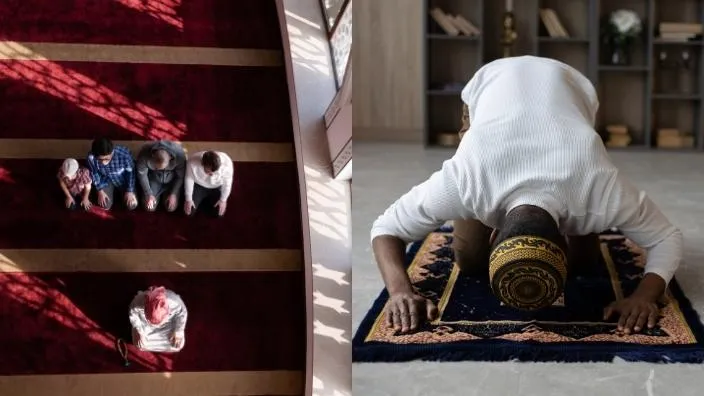
Witr can be prayed in both ways either collectively standing after the imam or individually. On normal days Muslims mostly offer Witr individually but particularly during Ramadan Muslims prefer offering witr collectively standing after the imam. They follow the imam, the imam recites surah but not dua e Qunoot and all of them recite silently.
Conclusion
The Witr prayer is the last prayer having the lengthiest offering time between the Isha and Fajr. There is a debate on praying witr, the timing of prayer, number of rakat and way of praying witr. Therefore the people cannot have an exact idea how to pray witr isha; the manner of prayer etc.
There are four imams; Abu Hanifah, Ahmad, Shafi and Malik and everyone has their own school of thought. The first one, Imam abu Hanifah, considered witr as wajib while the remaining three imams based the hadith that this prayer is not mandatory, were of the opinion that witr is sunna e muakaddah.
The number of rakah must strictly be odd, 1,3,5,7,9,11, and consists of a section called dua, in which the performers can recite either Dua Qunoot or any other dua they wish.
Frequently Asked Questions
How is Witr Salat performed?
Pray the first three or four essentials which are Takbeer, reciting Sura e fatiha and the final Sura. The major essential of Witr is another Takbeer followed by reciting Dua Qunoot or any other dua in the last rakat. The next essentials are Rukuh, Sajood, Qaida or Tashahud and the final concluding essential is Tasleem.
What are the three Rakats of Witr?
The first rakat always begins with essential niyyah or intention of the namaz, the next is Takbeer saying ALLAH O AKBAR, then begin with Subhanakala….. then Sura e Fatiha and then another surat which one you want to recite. Then perform Rukuh and the sujood. The second rakat ia the same but Tashahud is added and the third one has the extra takbeer followed by Dua Qunoot and concludes with Tasleem.
What is special about Witr?
The specialty for Witr is having the longest offering time of all prayers. The numbers of rakat also vary, depending on the performers and their capacity. But the number must strictly be odd, 1,3,5,7,9,11… This prayer consists of a section called dua, in which the performers can recite either dua e qunoot or any other dua they wish.
What is the specific dua for Witr?
Dua Qunoot is the specific dua for witr prayer. It is the epicentre of some discussions as well that which dua should be recited, either Dua e Qunoot or any other. So it is not a matter of confusion, you can recite any other dua as well if you wish. The most shortest and easiest is ALLAHUMA RABBANA …. which is recited in every prayer.

